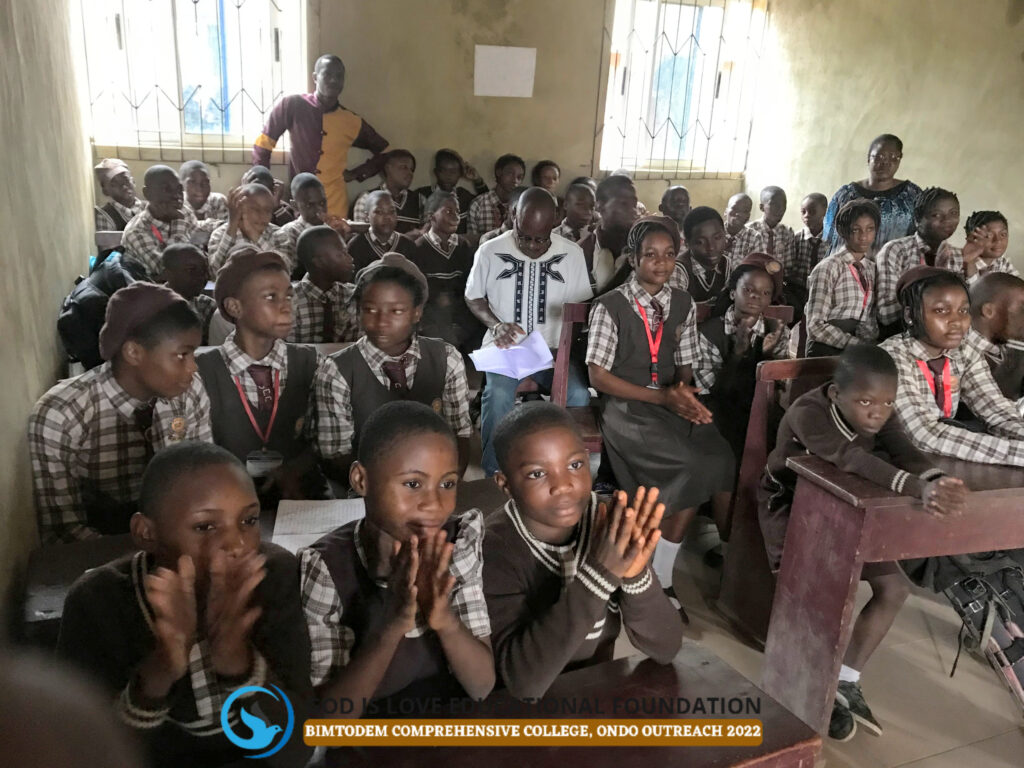Girls’ Education: Important for Girl Empowerment
Has gender equality been reached in education?
As a popular African says,
“To educate a boy is to educate an individual, to educate a girl is to educate a nation.”
The importance of girl-child education can not be overemphasized; the right to education should apply to all people regardless of age, gender, race, social status, etc. Can this right be seen as fundamental, inherent, inalienable, indivisible, and universal in these times? Does this right apply to the girl-child as much as the boy-child?
Well…, it can be said that more girls are getting educated in these times, particularly in developed countries. According to estimates made by UNESCO, the rates of primary and secondary school enrollment globally are closer to being equal for boys and girls with boys having 90% enrollment and girls having 89% enrollment. However, it does not rule out the fact that there are still a lot of weapons fashioned against the education of the girl-child: poverty, insecurity, violence, early marriage, cultural norms, and poor infrastructure, just to mention a few.

Indeed, it is not enough that girls can access the four walls of an educational facility. Their safety in classes must be ensured against violence and gender-biased insults. In addition, they should be allowed to engage in healthy competition with their male counterparts. The girl-child should be free to choose whatever career she wants and encouraged to pursue the height or level of education she intends to reach.
Education plus the girl-child equals?
Moreover, there is so much that the education of a girl-child can offer– to her, her family, her society, and the global community at large. It is like a huge gift box waiting to be unwrapped.
A Pumped Mindset
For one, there is her mindset. Educating the girl-child opens the eyes of her mind to possibilities she would not have thought of, otherwise. It transforms how she thinks of herself as well as boosts her self-esteem and confidence. She develops the necessary life skills such as critical thinking, self-management, communication, and negotiation among others. Armed with the knowledge that education affords her, the educated girl-child can properly navigate the course of her life by making informed choices. She is not only equipped to survive, but much more, to thrive wherever she finds herself.
A Motivated Achiever
Give an educated girl-child the platform to compete healthily with her male peers and watch her build such confidence to break gender-based barriers. The gender gap reduces in male-dominated areas such as the engineering, technology, health, agricultural sectors, and even politics as more females go into these sectors (We all see the evolution of the ‘tech sis’ movement). This not only challenges but also disproves the misconception that certain heights of achievement are unattainable for the female gender.

Take for instance, Dr. Ngozi Okonjo Iweala now serves as the Director General of the World Trade Organization. She remains the very first woman and African to attain such a feat. This way, education will become an added advantage to the emotional strength of the female gender. She will create an environment of compassion, care, and safety even when in leadership positions.
Education as the New Cycle
The higher the level of education the girl-child attains, the longer the time she spends in school. This reduces the incidence of early and forceful marriage. The educated girl-child then grows to become an educated woman who would make better choices regarding marriage. She would make informed choices for herself and her family in finances, nutrition and health as well. An educated mother would ensure that her children get educated as she understands the value that education has added to her. She would train her children in such a way that they become responsible citizens who make positive contributions to the development of society. This breaks the cycle of illiteracy in generations to come; education would be the new cycle.
Curtailed Social Vices
Asides illiteracy, social vices such as human trafficking, rape, drug abuse, prostitution, etc. can be curtailed if the girl-child comes to an awareness of her rights. When you educate a girl-child, she understands her rights and seeks to empower the rest of her kind with that knowledge. She becomes the voice of the people and an exemplar for other girls to emulate like the young prominent Pakistani education activist, Malala Yousafzai.
All-round Economic Growth
When she is educated, the earning capabilities of a woman are boosted as she is better equipped to participate productively in business and economic activity. Catering for the feeding, clothing, housing, and other needs of her and her family becomes a no-brainer. As she is exposed to the knowledge of saving and making investments, she will build financial security and combat poverty. As an employer of labour, she helps to reduce the unemployment rate in the society. This would also do well for the job market since more educated females would mean more people to compete in the job market. As such, her country’s Gross Domestic Product (GDP) thrives.

Global Progress
The education of a girl-child has direct, as well as indirect, effects on the Sustainable Development Goals (SDGs) as set by the United Nations in addressing the challenges faced globally. SDG 4 seeks to ensure inclusive and equitable quality education and promote lifelong learning opportunities for all. SDG 5 is to achieve gender equality and empower all women and girls. These two goals are achievable when the education of the girl-child is ensured and they will reflect in bringing the other 15 SDGs to reality including the eradication of poverty, improved maternal and child health, economic growth, decent employment, and building resilient industrialization. In one way or the other, girl-child education contributes to solving these problems and making our world a better place.

Join the Moving Train
Seeing the cascade effect of the education of the girl-child from herself to her family to her country and the global sphere at large, educating and empowering the women of tomorrow should not be left as an option. As Desmond Tutu (a South African Anglican bishop and human rights activist) said,
“If we are going to see real development in the world, then our best investment is women.”
Written by Oluwatoyosi
For the Editorial Team, God is Love Educational Foundation




